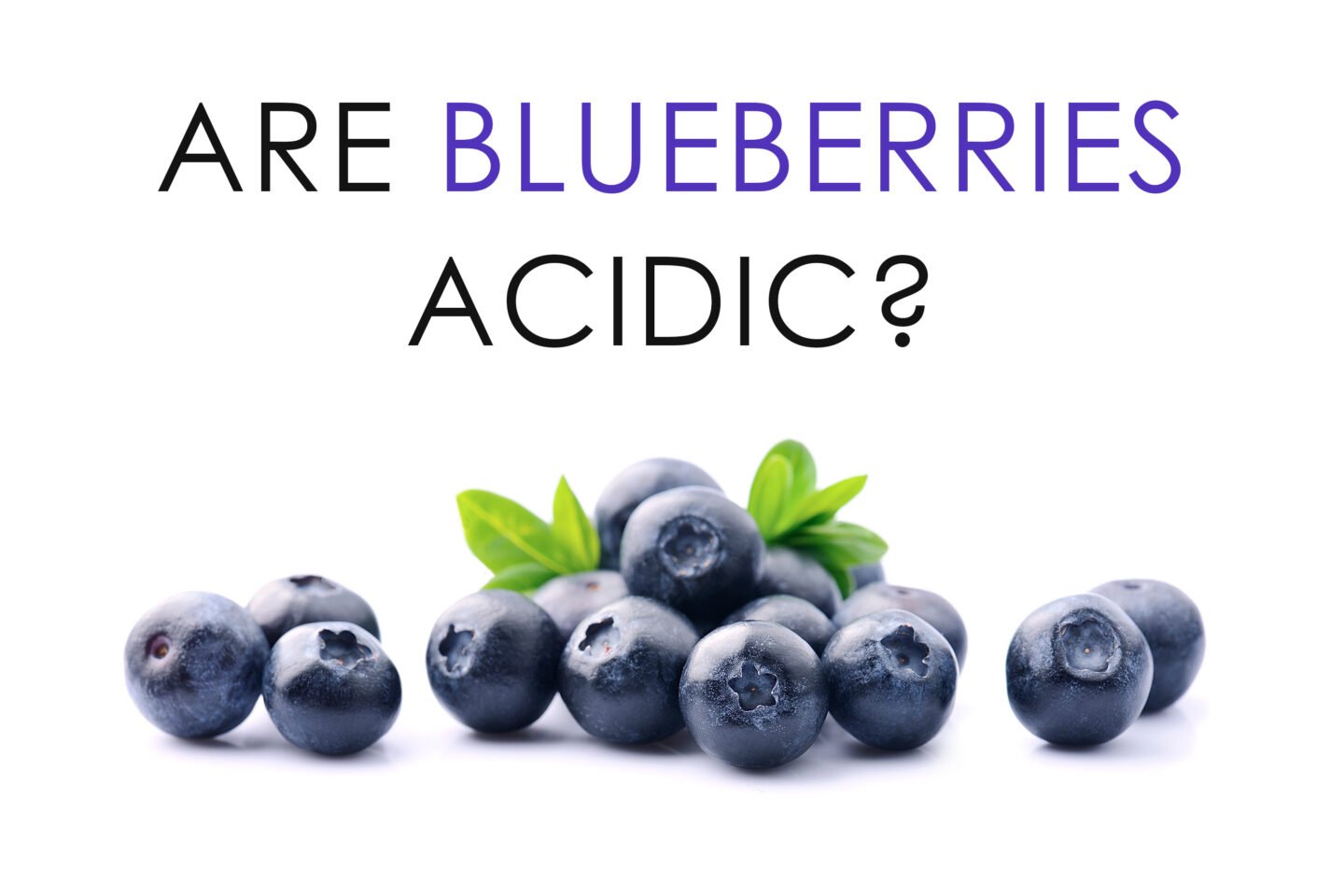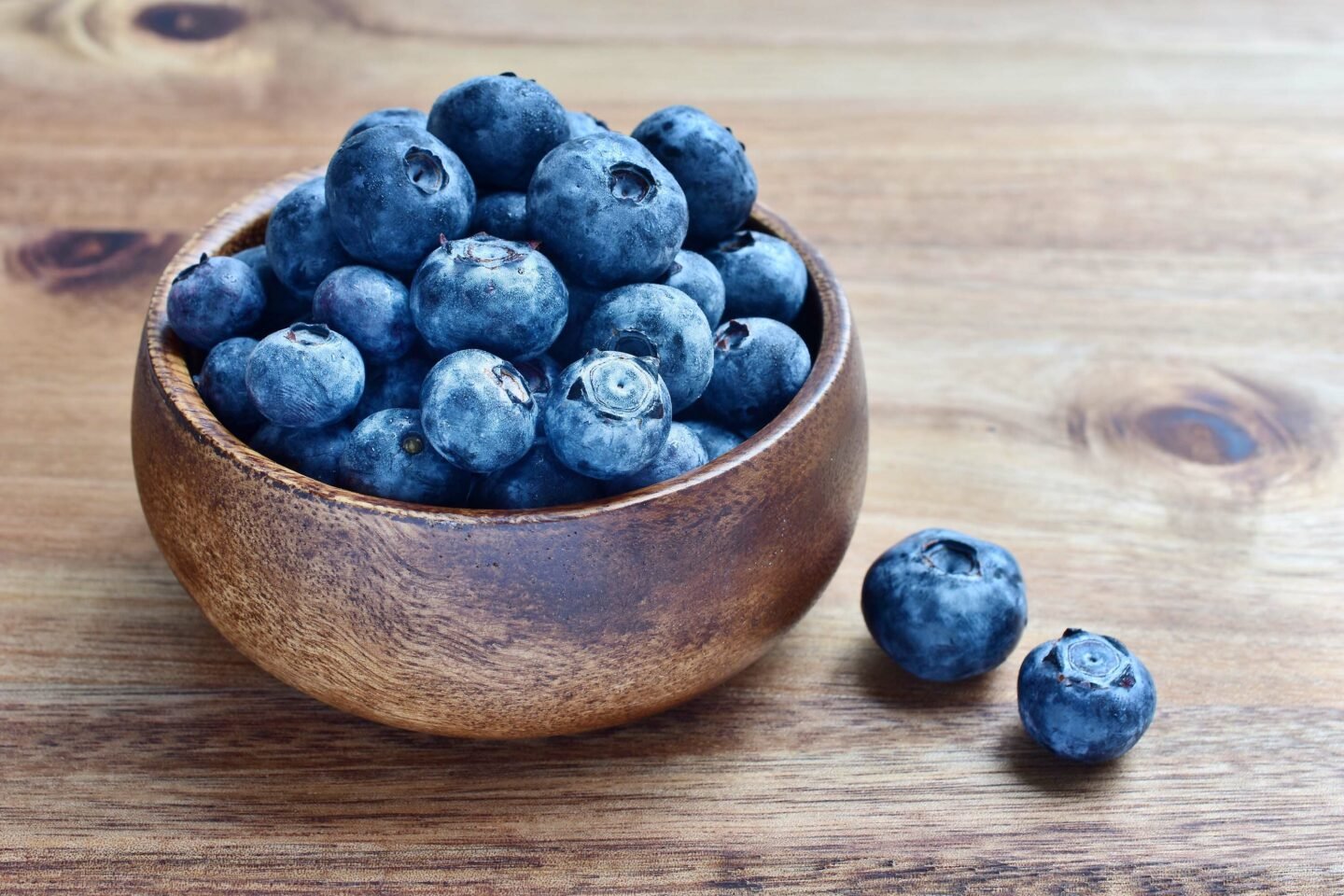Blueberries are a popular fruit that's delicious and highly nutritious. They're a fantastic addition to a healthy, balanced diet, whether you eat them on their own, in a fruit salad, or add them to your favorite smoothie.

However, many people suffer from acid reflux or GERD and may follow a low-acid diet to avoid triggering or worsening their symptoms like heartburn. Such a diet can be challenging, as followers must know the acidity of common foods and how each affects their symptoms.
Many fruits are acidic and may trigger acid reflux symptoms. But are they all?
Table of Contents
Are Blueberries Acidic or Alkaline?
Blueberries are acidic, and people with acid reflux or GERD should limit their intake or avoid them entirely. However, they're highly nutritious, so if you can tolerate their acidity, they're an excellent dietary addition.
What Is the pH of Blueberries?
The pH of blueberries is around 3.11 to 3.33, depending on the variety. However, like most berries, they're nutritious, and eating small quantities won't increase stomach acid production.
To prevent causing heartburn, mix blueberries with alkaline-forming fruits, such as watermelon, cantaloupe, and kiwi.
How Healthy are Blueberries?
Often called a superfood, blueberries are low in calories, containing only around 84 per cup. They're also about 85% water and contain no fat, which can worsen acid reflux and GERD symptoms.
They're rich in vitamin K, with a cup containing up to 36% of the recommended daily intake. Vitamin K contributes to blood clotting and wound healing.

Blueberries are also loaded with antioxidants, which flush out free radicals that damage your cells, helping prevent some cancers and age-related diseases.
They've also been shown to increase naturally occurring antioxidants in your body, soothing inflammation and promoting gut health.
These antioxidants, along with anti-adhesive substances, help prevent urinary tract infections.
Although a cup of blueberries contains 15 grams of sugar, their bioactive compounds help regulate blood sugar levels, positively affect insulin sensitivity, and support glucose metabolism.
Additionally, eating blueberries lowers bad cholesterol levels by as much as 27%, reducing your risk of heart disease and blood clots.
Some studies have also indicated that the antioxidants in blueberries improve memory and brain function.
Are Blueberries Bad for Acid Reflux?
Eating too many blueberries may trigger or worsen your acid reflux and GERD symptoms.
However, everyone's symptom triggers are different, and blueberries are an excellent addition to your diet if you can tolerate their acidity.
Is Blueberry Juice Bad for Acid Reflux?
Blueberry juice is acidic as fresh blueberries but contains less fiber. Fiber absorbs excess gastric acid, so most doctors recommend eating fresh berries rather than drinking juice.
It also contains more sugar, which can stimulate stomach acid production.
Is Blueberry Jam Bad for Acid Reflux?
Any jam contains a lot of sugar, which stimulates gastric acid production. As blueberries are acidic, so is the jam, so those on a low-acid diet should limit their intake or avoid it entirely.
Don't know what to drink? Check out these articles: 20 Most and Least Acidic Juices and 20+ Alcoholic Drinks Ranked by Acidity Level
